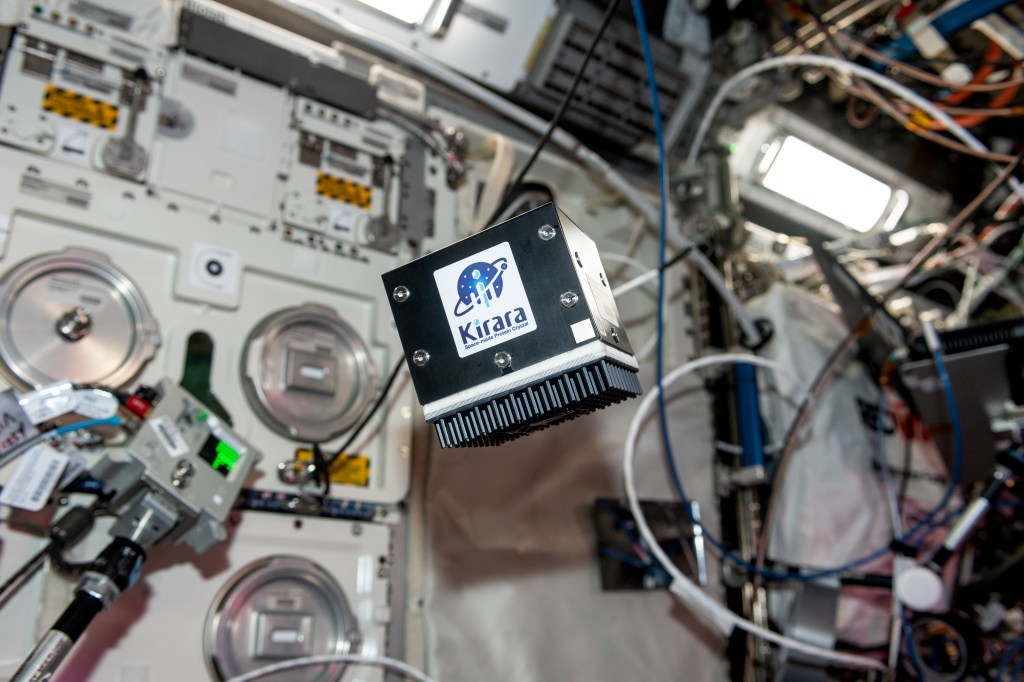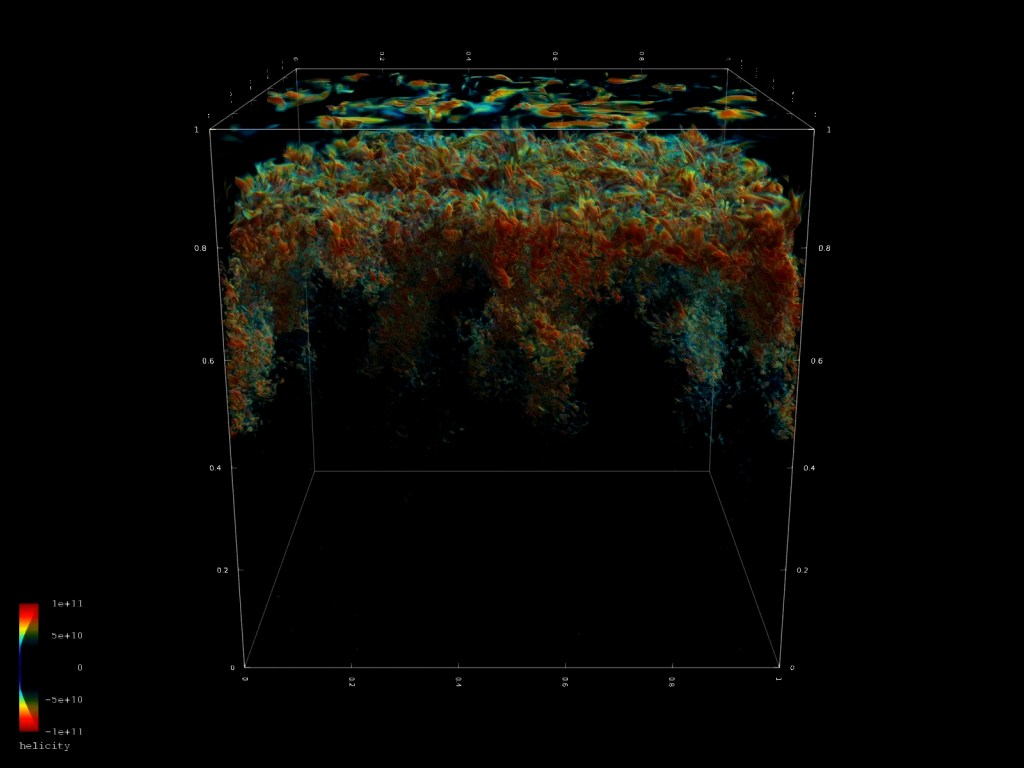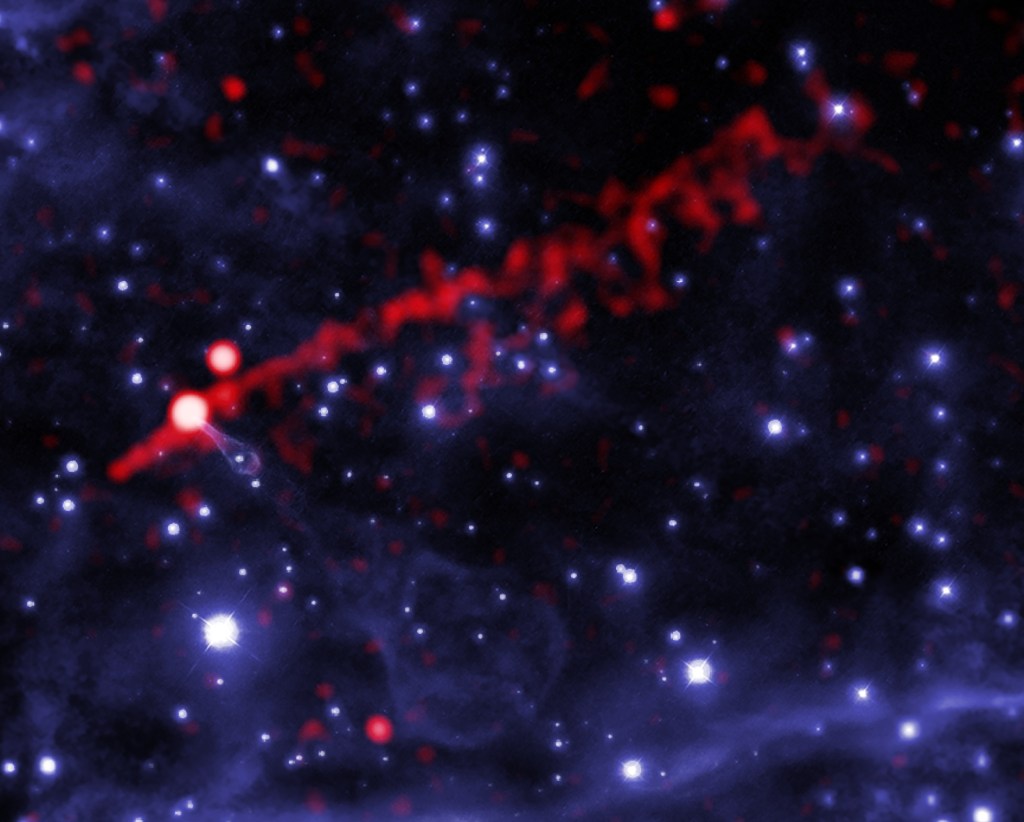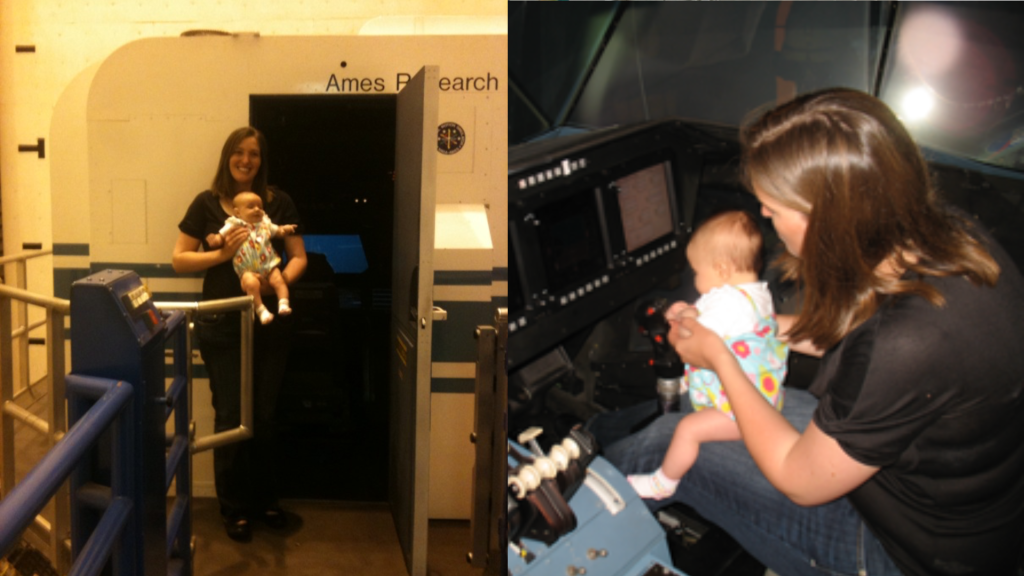How to get the most out of
FOIA at NASA
Below is information about how to submit a FOIA request to NASA. Included are links to the FOIA statute, NASA’s implementing regulations, executive orders, policies, and other guidance materials. In addition, we offer links to resources developed by other Federal agencies which address supplementary topics to the FOIA.
Submitting FOIA/PA Requests
How to Submit a FOIA Request to NASA
You should send your FOIA request directly to the NASA Center which you believe has the records you seek. A FOIA request can be made for any agency record. Requests may be summitted by mail, facsimile, electronic mail, or via NASA’s Public Access Link (PAL) to one of the 13 NASA FOIA Requester Service Centers. It is preferable, that requesters submit their requests online using PAL. To do so, you will need to create an account which allows you to check on the status of your request and correspond with the FOIA office through PAL. Submitting a request this way also walks requesters through populating the information required for inclusion in a FOIA request, and allows requesters to select the appropriate NASA Center to which the request will be sent. If a requester knows which Center maintains the requested records, it is best to send the request directly to that Center; however, when a requester is unable to determine the proper Center, the requester may send the request to the NASA Headquarters (HQ) FOIA Office. The HQ FOIA Office will forward the request to the Center(s) determined most likely to maintain the requested records. It is in the requester’s best interest to send the request to the appropriate FOIA Office as a misdirected request may take up to 10 additional working days to be re-routed to the proper office. Currently our PAL website is down. In the interim, you may submit a FOIA request by visiting the following website and selecting the appropriate Center: https://www.foia.gov/agency-search.html?id=15505805-6876-4fc8-9101-fb45c5ff32d0&type=agency
Information to Include
A FOIA request for NASA records must include the requester’s name, an email and mailing address, a detailed description of the specific record(s) sought, the fee category into which you believe you should be placed, and the total amount of fees you are willing to pay or justification for a fee waiver (see “FOIA Fees” below). It is also helpful to provide a telephone number in case the FOIA office needs to contact you regarding the request. NASA encourages requesters to submit their requests online via NASA’s Public Access Link (PAL). However, if you wish to submit your request via mail or email, please be sure to include the above required information. You may wish to download our fillable form, Information To Include in a FOIA Request, and submit a completed copy of it via mail or email. Please do not include social security numbers on any correspondence with the FOIA office.
If you wish to file a FOIA request for records about yourself or another person, in addition to the above information, you must also follow the guidance outlined below in “How to Submit a Privacy Act Request to NASA.”
How to Submit a Privacy Act Request to NASA
If you request records about yourself (a Privacy Act request), you must comply with the verification of identity provisions set forth in NASA Privacy Act Regulations, 14 CFR § 1212.202. Similarly, if you request records about another person, and disclosure of the records could invade that person’s privacy, they ordinarily will not be disclosed to you. You may receive greater access to the records, however, by submitting one of the following: (1) a notarized authorization signed by the individual who is the subject of the request; (2) a declaration by the individual made in compliance with the requirements set forth in 28 U.S.C. § 1746, authorizing disclosure of the records to the requester; or (3) proof that the individual is deceased (e.g., a copy of a death certificate, a verifiable obituary, etc.). To more easily satisfy the identity verification and third party waiver requirements, NASA accepts completed copies of Form DOJ-361; however, please do not include social security numbers on these forms.
As an exercise of its administrative discretion, each Center FOIA Office may require a requester to supply additional information if necessary in order to verify that a particular individual has consented to a third party disclosure. Information will only be released on a case-by-case basis to third party requesters if they have independently provided authorization from the individual who is the subject of the request.
Describing the Records You Seek
The FOIA allows individuals to request specific, identifiable records that exist and can be located within agency files. The FOIA does not require agencies to create or compile records, or answer questions posed as FOIA requests. You should be as specific as possible when describing the records you seek. The more specific you are about the records or types of records, the more likely it will be that the NASA personnel tasked with the search will be able to locate the records without placing an unreasonable burden on the agency. We ask that FOIA requesters conduct some research on NASA’s website and/or the world wide web to gather as much detailed information about the records as possible, and include that information in the FOIA request to facilitate a non-random search of NASA’s files. In general, requesters should include as much detail as possible about the records such as date or date range, title, author, recipient, subject matter of the record, case number, file designation, reference number, contract number, etc.
It is also important to identify which NASA Center is most likely to maintain the records, as well as the program office, individual, or other repository that would maintain it. Additional information about NASA’s Program Offices and Mission Directorates is available at the NASA Organization website. Additionally, information about NASA’s missions is available at the NASA Missions A-Z website, or you may Search All Nasa Missions. Before submitting your request, you may contact the Center’s FOIA contact or NASA’s FOIA Public Liaison to discuss the records you are seeking and to receive assistance describing the records.
In addition to the above-mentioned requirements for making a FOIA request, some types of records require additional information in order to conduct a search. Below are some commonly requested record types, and the information needed for the search:
| Record Type | Information to Include in Request |
|---|---|
| Emails | – Name of NASA email account holder – Date range of emails – Keywords (avoid generic keywords like “space” or “NASA,” and if such words are necessary, combine them in phrases or Boolean search terms) |
| Contracts (see below for additional information) | – NASA Center that holds the contract – Contract number – Specific records sought from the contract |
| Technical or Scientific Reports | Most technical and scientific reports are available at the NASA Technical Reports Server (NTRS). Please conduct a search at NTRS prior to submitting a FOIA request. If the report is not available to the public, please include the following information with your request: – Report Title – Document ID – Author – Publication Date |
NASA need not comply with a blanket or categorical request (such as those seeking “all matters relating to” a general subject) where it is not reasonably possible to determine what specific record is sought. NASA will in good faith attempt to identify and locate records sought; however, if a request fails to reasonably describe the records, the FOIA office will issue a letter informing the requester why the request is deficient and what additional information is needed. The FOIA office will also notify the requester that it will not be able to comply with the FOIA request unless additional information is provided within 20 working days. If the additional information is not provided within that time frame, the request will be closed without further notice.
FOIA Requests for Contracts
A request for contracts must include the specific NASA contract number(s) of interest and a detailed explanation of the documents requested. You may find contract numbers via the System for Award Management (SAM), SAM.gov. SAM.gov allows anyone to register and access records pertaining to all federal agency procurement actions. This includes the ability to run a variety of reports based on specified criteria.
Requesters seeking contracts awarded by NASA are generally categorized as “commercial use requesters” for fee assessment purposes. Commercial use is defined as any use or purpose that furthers the commercial, trade, or profit interests of the requester. In accordance with NASA’s FOIA Regulation 14 CFR § 1206.507, commercial use requesters pay all fees associated with processing their requests, which include search, review, and duplication fees. A request that does not identify the amount a requester is willing to pay for the associated fees will be placed on hold until the requester agrees to pay fees. If a requester only states his/her willingness to pay a limited amount for processing the request, and it is for more than one document, then the requester must state the order in which he/she would like the request for records to be processed. Additionally, the requester may limit the scope of the request to reduce processing fees.
What NASA Generally Releases in Contracts:
- Amounts actually paid by the Government under a contract, such as total contract award amounts and total modification amounts.
- Total option year pricing;
- Explanatory material and headings associated with costs and pricing;
- Names of federal employees and key contractor employees;
- Contractual provisions and clauses authored by NASA.
What NASA Generally Withholds from Contracts:
- Technical and cost proposals submitted in response to a solicitation (automatically withheld under an Exemption (b)(3) statute);
- Unique ideas, methods, or processes (trade secrets);
- Equipment, materials, processes, or systems that are patented, copyrighted, or contains restricted information; or
- Cost and pricing data that is not already generally known as a part of regular business practices, such as burdened labor rates or G&A rates.
- Plans or submissions submitted by the contractor which are incorporated into the finalized contract.
FOIA Appeals
If you deem the response you receive to your FOIA request to be an adverse determination, you may exercise your appeal rights. Appeals must be received within 90 days from the date of the determination letter. Please mail appeals to:
Administrator
NASA Headquarters
Executive Secretariat
ATTN: FOIA Appeals
MS 9R17
300 E Street, S.W.
Washington, DC 20546
Both the envelope and letter of appeal should be clearly marked, “Appeal under the Freedom of Information Act.” You must also include a copy of your initial request, the adverse determination, and any other correspondence with the FOIA office. In order to expedite the appellate process and ensure full consideration of your appeal, your appeal should contain a brief statement of the reasons you believe this initial determination should be reversed. Additional information on submitting an appeal is set forth in the NASA FOIA regulations at 14 C.F.R. § 1206.700.
Records from NASA’s Office of Inspector General (OIG)
FOIA requests for OIG documents are handled independently by the NASA OIG. For more information about where to send your request, see instructions available at the OIG FOIA Website.
Laws and Executive Orders
| The Freedom of Information Act – Text of the FOIA statute, showing changes made by the FOIA Improvement Act of 2016 (5 U.S.C. § 552). |
| Executive Order 12600 – The Executive Order requiring agencies to establish procedures to notify submitters when their confidential commercial information is subject to release under the FOIA. |
| FOIA Improvement Act of 2016 – A summary of the Act by the Department of Justice, Office of Information Policy. |
NASA Regulations
| NASA FOIA Regulations – The rules published in the Code of Federal Regulations that detail NASA’s procedures for implementing the FOIA. |
| NASA Privacy Act Regulations – The rules published in the Code of Federal Regulations that detail NASA’s procedures for implementing the Privacy Act. |
FOIA Fees
NASA charges fees for FOIA requests in accordance with NASA’s FOIA Regulations and the Office of Management and Budget Guidelines for FOIA Fees (which was updated in 2020). If fees apply to your FOIA request, NASA will generally collect them before releasing records. Fees are charged to requesters in order to recover the costs of search, review, and/or duplication. Fees may be charged even if no records are found, or if the record(s) are withheld under one of the nine FOIA exemptions.
If the total cost of supplying the requested records is less than $50.00, NASA will not charge you. Fees will be determined on October 1st each year based on the appropriate General Schedule (GS) base salary for federal employees, plus the District of Columbia locality payment, plus 16% for employee benefits.
For further information you may wish to review NASA’s FOIA regulation related to fees (Subpart E—Fees Associated With Processing Requests, 14 CFR § 1206.500 through 1206.505). The current schedule of fees is offered below.
Schedule of NASA FOIA Fees as of January 1, 2024*
| Quarter Hour Rate | Hourly Rate | |
|---|---|---|
| Clerical Search/Review (GS-7 and below / contractor) | $6.87 | $27.48 |
| Professional Search/Review (GS-8 through GS-12) | $11.89 | $47.56 |
| Managerial Search/Review (GS-13 and above) | $17.25 | $69.00 |
| Duplication (Copy/Scan Standard Size) | .15 cents per page | .15 cents per page |
| Direct Costs for Non-Standard Work or Duplication | TBD | TBD |
Fees for Requests Received and Perfected Before January 1, 2024*
| Quarter Hour Rate | Hourly Rate | |
|---|---|---|
| Clerical Search/Review (GS-7 and below / contractor) | $6.53 | $26.12 |
| Professional Search/Review (GS-8 through GS-12) | $11.29 | $45.16 |
| Managerial Search/Review (GS-13 and above) | $16.38 | $65.52 |
| Duplication (Copy/Scan Standard Size) | .15 cents per page | .15 cents per page |
| Direct Costs for Non-Standard Work or Duplication | TBD | TBD |
Cost Breakdown
As previously mentioned above, FOIA fees are charged for search time, review time, and/or duplication. The requester’s fee category determines which of these types of fees are charged. The chart below indicates which fee type applies to each requester category. Additional information about each requester category is available in NASA’s FOIA Regulations, 14 C.F.R. § 1206.507.
| Requester Category | Search Fees | Review Fees | Duplication Fees |
|---|---|---|---|
| Commercial | Yes | Yes | Yes |
| Educational and Non-commercial Scientific Institutions | No | No | Yes (first 100 pages are free) |
| News Media | No | No | Yes (first 100 pages are free) |
| Others | Yes (first 2 hours are free) | No | Yes (first 100 pages are free) |
Fee Waivers
If you expect that a fee will be charged for your FOIA request, you may request a waiver of those fees. Under the FOIA, fee waivers are limited to situations in which a requester can show that the disclosure of the requested information is in the public interest because it is likely to contribute significantly to public understanding of the operations and activities of the government and is not primarily in the commercial interest of the requester. Requests for fee waivers from individuals who are seeking records pertaining to themselves usually do not meet this standard because such disclosures usually benefit the individual requester rather than increase the public’s understanding of government operations and activities. In addition, a requester’s inability to pay fees is not a legal basis for granting a fee waiver.
If you seek a fee waiver, it is your responsibility to provide detailed information to support that request. You must submit this information with your FOIA request. Each fee waiver request is judged on its own merit on a case-by-case basis. NASA does not grant “blanket” fee waivers. So, if you received a fee waiver in the past, you are not guaranteed to obtain one for other requests since an essential element of any fee waiver determination is whether the release of the particular records sought will likely contribute significantly to public understanding of government operations or activities. Additional information about the requirements for a fee waiver is available in NASA’s FOIA Regulations, 14 C.F.R. §1206.506.
Expedited Processing
Under certain conditions you may be entitled to have your request processed on an expedited basis. You must demonstrate an exceptional need or urgency to have the requested records processed out of turn. NASA recognizes three standards by which requesters will be granted expedited processing of a FOIA request. One of the following standards must be met:
- Lack of expedited processing could reasonably be expected to pose an imminent threat to the life or physical safety of an individual;
- There is an urgency to inform the public about an actual or alleged federal government activity, if made by a person primarily engaged in disseminating information; or
- Failure to release the information would impair substantial due process rights.
A request for expedited processing must be accompanied by a statement explaining in detail the reasons why your request should be expedited. You should certify that the reasons you have given are true and correct. NASA will be required to notify you of its decision whether to grant or deny expedited processing within ten calendar days after receiving your letter. If NASA denies your request for expedited processing, you will be advised of your right to submit an administrative appeal of that denial.
NASA Records and Records Retention
| Records Management Program – The website for NASA’s Records Management Program. |
| Privacy Act System of Records Notices (SORNs) – a list and links to NASA’s published and rescinded SORNs. |
| NASA Major Information Systems – This website contains links to NASA Privacy Impact Assessments. |
| General Records Schedule 4.2 – The National Archives and Records Administration general records schedule for Information Access and Protection Records. |
Other Sources of Public Information
| NASA Procurement – Explores and executes innovative, effective, and efficient acquisition business solutions to optimize capabilities and operations that enable NASA’s missions. |
| NASA Acquisition Internet Service (NAIS) – A service providing information about NASA procurements. |
| Federal Acquisition Jumpstation – Provides “hotlinks” to all federal procurement information on the Internet. Allows you to link to departments and agencies throughout the government to retrieve acquisition forecasts, announcements, solicitations, how-to guides, small business assistance information, plus federal acquisition regulations. |
| NASA Grants (Grants.gov) – Funding opportunities from NASA. |
| NASA Technical Report Server (NTRS) – Provides access to NASA metadata records, full-text online documents, images, and videos. The types of information included are conference papers, journal articles, meeting papers, patents, research reports, images, movies, and technical videos – scientific and technical information (STI) created or funded by NASA. |
| NASA Online Directive Information System (NODIS) – Current directives issued by NASA. |
| Data from NASA’s Missions, Research, and Activities – NASA archives all science mission data products to ensure long-term usability and to promote wide-spread usage by scientists, educators, decision-makers, and the general public. Our vision is to facilitate the on-going scientific discovery process and inspire the public through the body of knowledge captured in these public archives. |
| NASA Open Data Portal (data.nasa.gov) – NASA’s clearinghouse site for open-data provided to the public. |
| NASA Launch Schedule – View NASA’s schedule of planned launches and landings. |
| NASA History Office – Established in 1959 (a year after NASA itself was formed) the NASA History Office has continuously documented and preserved the Agency’s remarkable history for nearly 65 years. |
| NASA Records at the National Archives – Information available at the National Archives about the United States’ space flight programs, including NASA missions and the astronauts who participate in the efforts to explore Earth’s galaxy. |
| System for Award Management (SAM.gov) – An official website of the U.S. Government, available at no cost to users, which allows users to search for contract opportunities, access publicly available award data, and more. |
| US Government Printing Office/Digital System – Provides free public access to official publications from all three branches of the Federal Government. |
Other FOIA-Related Websites
| Department of Justice (DOJ): – Office of Information Policy – Encourages and oversees agency compliance with the FOIA. – DOJ Guide to FOIA – A comprehensive legal treatise on the FOIA that is regularly updated. – DOJ Executive Briefing on FOIA (video) – FOIA.gov – The government’s website for all information on the FOIA. – DOJ Infographic on FOIA – Statutes DOJ Found to Qualify Under Exemption 3 of the FOIA (last updated October 2023) – DOJ Guidance on Implementing FOIA’s Statutory Exclusion Provisions (September 19, 2012) – DOJ FOIA Post |
| National Archives and Records Administration: – Office of Government Information Services (OGIS) – Offers mediation services to resolve disputes between FOIA requesters and federal agencies. Using OGIS’ services does not affect your right to pursue litigation. Contact information for OGIS is available at https://www.archives.gov/ogis/about-ogis/contact. – OGIS Flyer “How to Request FOIA Mediation Services” – NCND/Glomar: When Agencies Neither Confirm Nor Deny the Existence of Records – An article providing detailed information about Glomar responses an agency, including NASA, may issue. |
FOIA Training
| FOIA Training for Executives – A 15-minute course from the Department of Justice that provides a basic overview of the FOIA and explains how this law impacts agency leaders. Topics covered include an overview of the FOIA, proactive disclosure, reporting and accountability, and FOIA resources and support. |
| FOIA Training for Federal Employees – A 1-hour course from the Department of Justice that provides a primer on the FOIA and explains how employees can assist the agency with FOIA administration. Topics covered include who can make a request, the FOIA’s time limits, and searching for responsive records. |




























